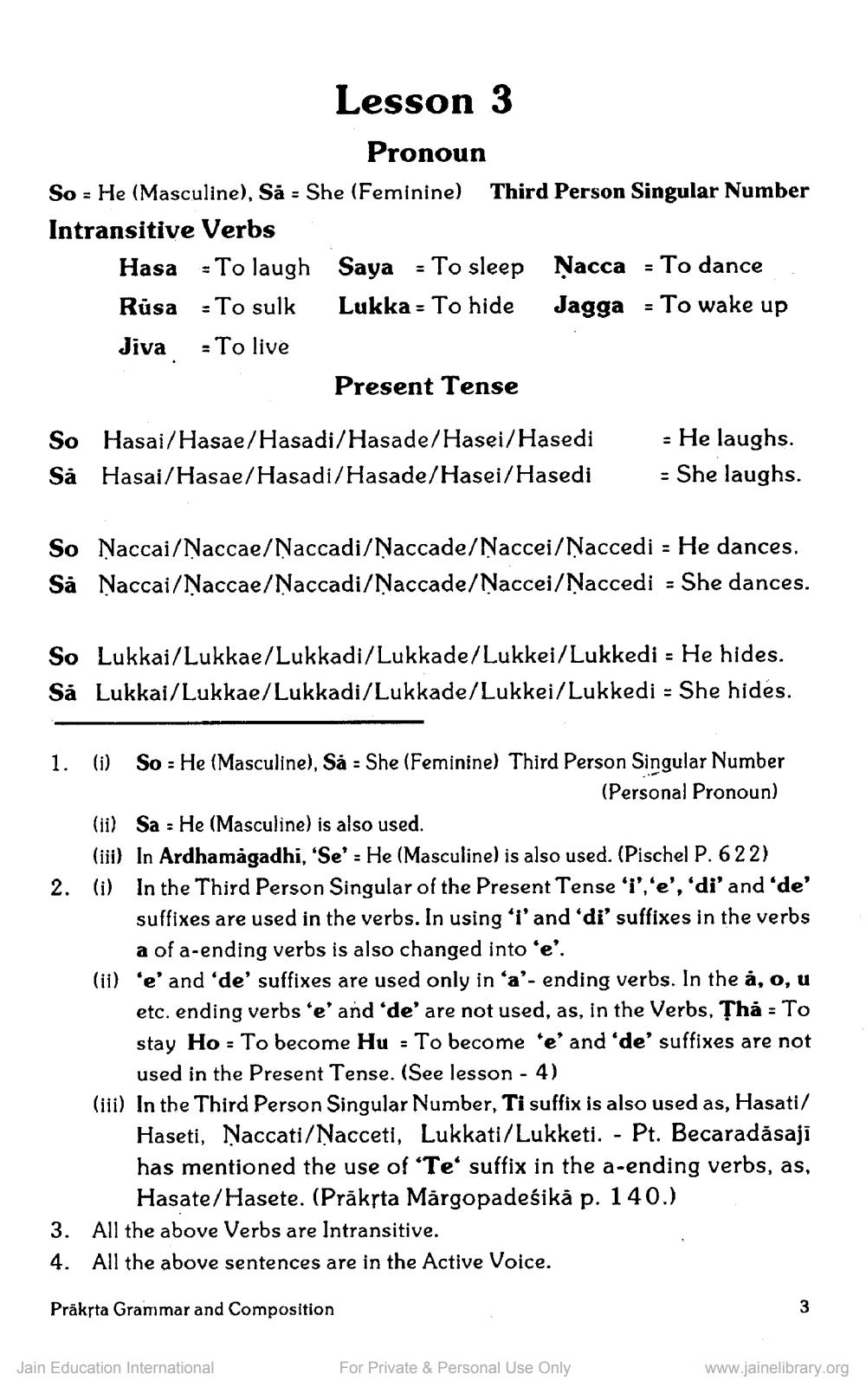________________
Lesson 3
Pronoun
So = He (Masculine). Så - She (Feminine)
Third Person Singular Number
Intransitive Verbs
Hasa =To laugh Rusa -To sulk Jiva =To live
Saya = To sleep Ņacca - To dance Lukka - To hide Jagga - To wake up
Present Tense
So Hasai/Hasae/Hasadi/Hasade/Hasei/Hasedi Så Hasai/Hasae/Hasadi/Hasade/Hasei/Hasedi
- He laughs. - She laughs.
So Naccai/Naccae/Naccadi/Naccade/Naccei/Naccedi - He dances. Så Naccai/Naccae/Naccadi/Naccade/Naccei/Ņaccedi - She dances.
So Lukkai/Lukkae/Lukkadi/Lukkade/Lukkei/Lukkedi - He hides. Så Lukkai/Lukkae/Lukkadi/Lukkade/Lukkei/Lukkedi - She hides.
1. (i) So : He (Masculine), Sá - She (Feminine) Third Person Singular Number
(Personal Pronoun) (ii) Sa = He (Masculine) is also used.
(iii) In Ardhamågadhi, 'Se': He (Masculinel is also used. (Pischel P. 622) 2. (i) In the Third Person Singular of the Present Tense 'i', 'e', 'di' and 'de'
suffixes are used in the verbs. In using 'i'and di' suffixes in the verbs
a of a-ending verbs is also changed into 'e'. (ii) 'e' and 'de' suffixes are used only in ‘a'- ending verbs. In the a, o, u
etc. ending verbs 'e' and 'de' are not used, as, in the Verbs, Tha = To stay Ho - To become Hu - To become 'e' and 'de' suffixes are not
used in the Present Tense. (See lesson - 4) (iii) In the Third Person Singular Number, Ti suffix is also used as, Hasati/
Haseti, Ņaccati/Nacceti, Lukkati/Lukketi. - Pt. Becaradásaji has mentioned the use of 'Te suffix in the a-ending verbs, as,
Hasate/Hasete. (Prāksta Mārgopadeśikä p. 140.) 3. All the above Verbs are Intransitive. 4. All the above sentences are in the Active Voice.
Praksta Grammar and Composition
Jain Education International
For Private & Personal Use Only
www.jainelibrary.org




